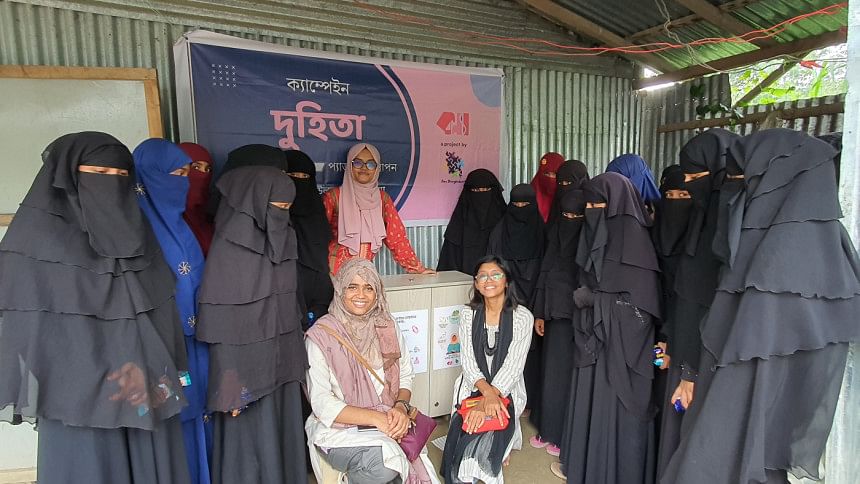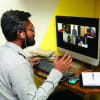Campaign Dyuti: Creating menstrual hygiene awareness among the visually impaired

Since its inception in 2016 through a post-disaster emergency response in Jamalpur, Project Konna, an initiative of the Give Bangladesh Foundation, has been working constantly to eradicate the stigma around menstruation and menstrual hygiene. For the first time in Bangladesh, Project Konna has taken an initiative to create a braille book containing information on menstrual health to create menstrual hygiene and health awareness among visually impaired female students.
On the occasion of World Menstrual Hygiene Day on May 28, Project Konna chose three schools for visually impaired girls to serve 70 students in the first phase of the campaign. Under this campaign, each student received a braille module that contains information on menstrual hygiene management, along with menstrual hygiene kits covering six months. The hygiene kits include sanitary napkins, hot water bags, vitamin C tablets, painkillers, toilet tissue paper, and handwash among others. With just BDT 1300, people can stand beside one visually impaired girl in the campaign.
Menstruation is still considered taboo in our country. The stigma is more prevalent in madrasahs, remote schools, villages, and char areas. In these areas, girls are rarely prepared for their first period, and many girls drop out of school while going through their period. Additionally, they may face societal restrictions. They also become vulnerable to reproductive tract infections (RTI) and other illnesses due to poor hygiene standards and unsanitary latrines in these areas. The visually impaired girls suffer more troubles in these regards owing to their limitations. Prior to Campaign Dyuti, Project Konna conducted activities like school workshops, a special campaign Duhita focusing on madrasahs for females, Uthon periye dui pa campaign in rural areas, etc. to dispel myths, educate girls about period cycles and dos and don'ts during menstruation, and raise awareness of good hygiene. Their current campaign focuses on visually impaired girls as a testament to their commitment to eradicating period stigma from Bangladesh.
When asked about the initiative, Chowdhury Maliha Mizan, Project Manager at Project Konna, said, "Project Konna is determined to build an inclusive society and to ensure that women with visual impairments don't fall behind due to period stigma, hence the initiative has been taken to develop a braille book on menstrual hygiene management."
She added that the Give Bangladesh Foundation has a plan to start a need-based assessment for the development of menstrual hygiene and period-friendly toilets at schools for visually impaired girls in the future. However, funding is a major obstacle as their fundraising is primarily based on the spontaneous flow of funds. Owing to countrywide financial constraints and the recent unfolding of fundraising hoaxes, the fundraising status is a bit lower than expected. However, Give Bangladesh is committed to making the project successful.
This is not the first initiative of its kind by Give Bangladesh. It has been actively serving marginalised people through various initiatives. Earlier this year during Ramadan, Give Bangladesh partnered with Kamrunnesa Khatun Foundation (KKF) and Jhilimili, a charity organization by the students of the Institute of Business Administration (IBA), Dhaka University, to distribute Iftar among 15,343 underprivileged people across seven districts of Bangladesh. Their beneficiaries included low-wage workers, orphans, madrasah children, floating sex workers, and coastal women among others. Let us support initiatives like the Campaign Dyuti to address the period taboo in Bangladesh to ensure a bright future for our girls.

 For all latest news, follow The Daily Star's Google News channel.
For all latest news, follow The Daily Star's Google News channel. 








Comments